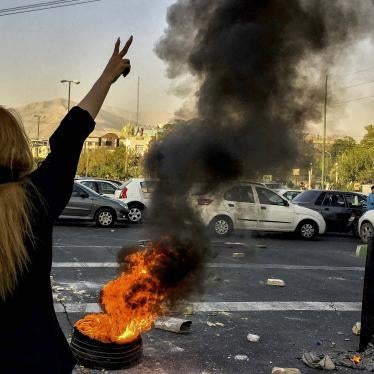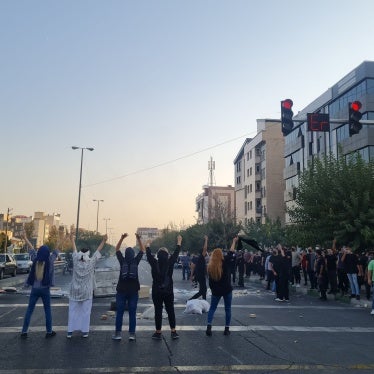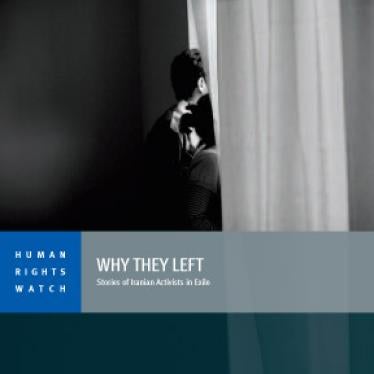In early November, FIFA president Gianni Infantino was in Iran for the finals of the Asian Football Confederation tournament. This was his second visit this year to Tehran’s Azadi “Freedom” Stadium, where women have been banned since 1981.
“Today is a historic and festive day for football, a real breakthrough,” Infantino declared, hailing images of several hundred women in Azadi stadium, which holds 100,000 fans and is one of the world’s largest. Infantino continued lavishing praise on the Iranian government. “So much credit must go to the Government of the Islamic Republic of Iran and the Football Federation Islamic Republic of Iran for their co-operation and support in staging this memorable final,” he said, adding, “I was delighted to personally witness that, for the first time in 40 years, Iranian female football fans were allowed to attend an official match again.” Dozens of global media outlets picked up Infantino’s statement as if he had personally overturned the stadium ban for women.
Unfortunately, Iran’s ban on half the population enjoying soccer in stadiums still stands.
Even at the time of Infantino’s visit, activists confirmed that women could not freely purchase tickets. Evidence circulated on social media that many others were excluded. According to journalist Zahra Alipour, male fans can be heard yelling, “It’s a lie –it’s a lie,” in published footage. And as Human Rights Watch has documented, admitting some hand-picked women while excluding others is a deceptive tactic Iran has deployed before at international volleyball tournaments.
Infantino may have overstated the progress because of the debacle when he visited Iran in March and 35 women and teenaged girls, including journalists, were arrested for attempting to see a major tournament, the Derby. Iranian women had been convinced they would be admitted to the stadium because the global leader of soccer would be in the stands. Instead, they ended up in a police station.
Indeed, for decades, Iranian women have put themselves in danger to document their exclusion from stadiums, which they see as a denial of women’s rights to be part of public spaces and the life of the country. As brilliantly depicted in Jafar Panahi’s award-winning 2006 film Offside, teenage girls still come to stadiums dressed as men to cheer for their teams, and have also attempted dangerous stadium wall climbs.
On October 17, Iran’s chief prosecutor Mohammad Javad Montazeri warned, “The presence of women in stadiums is harmful” and a sin.
Activists from @OpenStadiums and #NoBanForWomen have written FIFA and the Asian Football Confederation for years with evidence of the country’s discrimination to demand that the federations uphold their own rules. Before Infantino’s visit, Iranian women delivered a Change.org #NoBan4Women petition to FIFA with more than 210,000 signatures calling for FIFA to pressure Iran to overturn the ban.
Yet after the tournament, Infantino bizarrely gave credit to Iran’s government and federation. Such glowing statements of praise should go only to the women who have worked for years to upend the unjust ban — not to the violators who have excluded half the population for decades. The women who signed and delivered the petition put themselves at substantial risk in a country where women who even try to enter a stadium could find themselves in jail.
FIFA’s commendations to Iranian officials are especially ill-advised because of the broader human rights picture in the country: Iran has stepped up repression of women’s rights defenders in recent months, summoning many to the country’s notorious Evin prison.
Moreover, FIFA has adopted the U.N. Guiding Principles on Business and Human Rights, which require staff to assess risks and provide a remedy for human rights abuses, especially when dealing with a government that has shown a willingness to make sports federations complicit in their discrimination and endangerment of women and girls.
There is still reason to hope for real progress in overturning Iran’s stadium ban: Tehran is a true outlier now that Saudi Arabia started allowing women in stadiums in January. Even Iran’s President Hassan Rouhani reiterated that he is in favor of lifting the ban.
This week, FIFA’s own Human Rights Advisory Board told FIFA leaders that they need to set a deadline for ending the ban and impose sanctions. In a report published Monday, the independent experts said that Iran’s ban on women fans violates FIFA’s own ethics code, which “specifically prohibits discrimination including on the basis of gender.”
Meanwhile in Iran, there have been a dozen league games since Infantino’s visit — all without women attending.
FIFA leaders should not declare victory until they have proof that all women in Iran can freely buy tickets and attend safely — and not just when Gianni Infantino is there watching.
Minky Worden is director of Global Initiatives at Human Rights Watch, and oversees the organization’s work on human rights and sports. Follow her on Twitter here.










